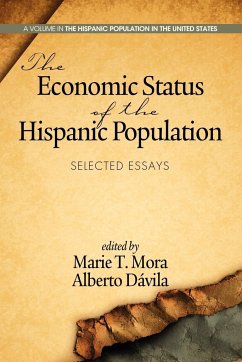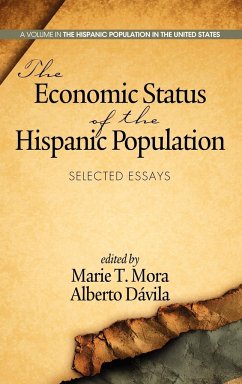
The Economic Status of the Hispanic Population
Selected Essays
Herausgeber: Mora, Marie T.; Davila, Alberto

PAYBACK Punkte
28 °P sammeln!
In 2010, Hispanics represented one out of every six people in the U.S. (up from one out of eight in 2000), such that the economic status of this population has become increasingly important for the economic direction of the nation. This volume brings together a group of scholars who analyze a variety of socioeconomic issues (particularly those related to education, poverty, and health) to assess how Hispanics have been faring relative to other Americans. A common theme across the chapters is that Hispanics tend to lag behind non-Hispanics with respect to their economic outcomes. Despite this l...
In 2010, Hispanics represented one out of every six people in the U.S. (up from one out of eight in 2000), such that the economic status of this population has become increasingly important for the economic direction of the nation. This volume brings together a group of scholars who analyze a variety of socioeconomic issues (particularly those related to education, poverty, and health) to assess how Hispanics have been faring relative to other Americans. A common theme across the chapters is that Hispanics tend to lag behind non-Hispanics with respect to their economic outcomes. Despite this lag, however, some of the studies indicate that Hispanics have been making progress in terms of improving their relative economic position in recent years. Several of the chapters also discuss policy implications. The intended audience includes social scientists, students, policymakers, and anyone interested in learning more about the economic conditions of Hispanic Americans. Many of the authors employed rigorous statistical methods to analyze the economic status of Hispanics, but the chapters were written to be accessible to a broad audience instead of one comprised mainly of quantitatively-oriented academics.














